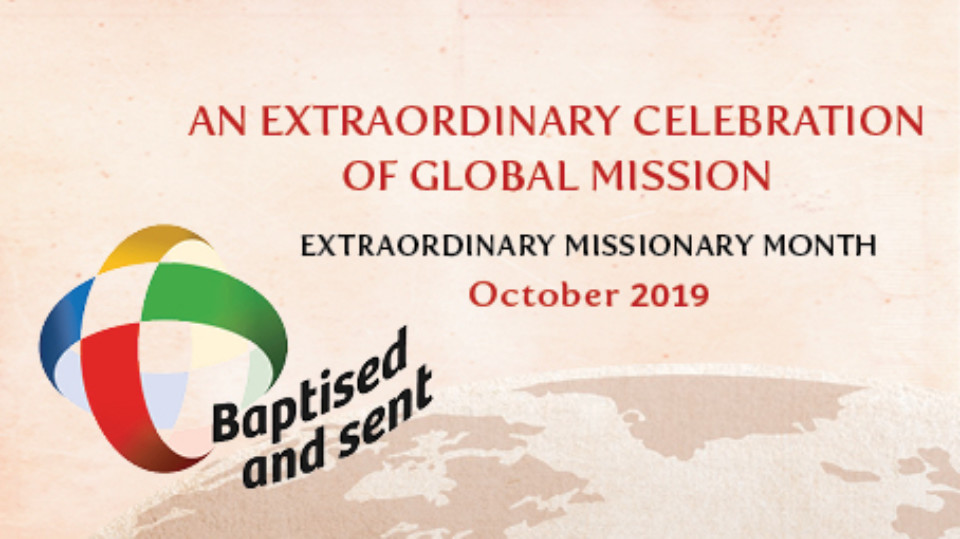
Maximum Illud – an extraordinary document
Maximum Illud – an extraordinary document
Maximum Illud was proclaimed by Pope Benedict XV on 30 November 1919. It takes its title from the opening words of the original Latin text, meaning "that momentous". Benedict begins by recalling "that momentous and holy charge" found in Mark 16:15: "Go into the whole world and preach the gospel to all creation." Benedict wrote the apostolic letter because “there still remain in the world immense multitudes of people who dwell in darkness and in the shadow of death”. [# 6] Its theological message, therefore, was not new. However, it was striking for its time. It came at the end of World War I, the “war to end all wars”. This war was so shocking that it undermined the confidence of many in Europe and the United States in religion and especially Christianity.
However, Benedict’s letter is revolutionary in ways that we find difficult to appreciate today. He was especially concerned with the fate of the church in the developing countries because he sensed the first stirrings of the various independence movements that would end in colonialism. He strongly objected to three aspects of mission as practised at that time: congregationalism, nationalism and western superiority.
At that time, mission was organised along the lines of ius commissionis. Rome gave congregations such as the Franciscans the responsibility for certain areas of dioceses. Congregations guarded their privileges jealously. Other missionary groups were kept out and local vocations not encouraged. Benedict insisted in 1919 that missionaries train and value indigenous clergy so that “one day they will be able to take up the spiritual leadership of their people”. Benedict XV effectively began internationalising the leadership of the church. It would bear fruit under Benedict’s successor, Pius XI, who ordained bishops for India (1923), China (1926), Japan (1927), Indochina (1937) and Africa (1937).
Later, Karl Rahner called Vatican II, the “emergence of the world church”. Of the 2,860 bishops who participated in the Council, 20% were born in Asia-Oceania, 10% in Africa and around 20% in Latin America. There had been bishops from these continents at previous councils, but they had mostly been European missionary bishops. This was the first time there were hundreds of “local” bishops taking part in the Council’s debates, and it made a difference especially in discussions about local churches, liturgy, reform of the curia and mission. This movement for internationalisation of the church has continued as we increasingly become a Global and even “Southern” Church and have our first pope from the “majority world”. That may not have been possible without the courage and insight shown by Benedict XV.
The nineteenth Century had also been a remarkable century for the missionary movement in Europe. Various organisations were founded to encourage European Catholics to be enthusiastic about and support spiritually and financially overseas missionaries.
From 1822, missionaries had been funded by Propaganda Fidei (the Society for the Propagation of the Faith). Propaganda spread from France to other countries in Europe. Pope Benedict was concerned that while these various national organisations did worthy work, they were not coordinated and their approach to mission was sometimes dated. He wanted to draw them together under a single Vatican department. To do this he needed a persuasive, diplomatic man who could convince the various organisational heads to cede both power and funds for the common good of the “missions”. The man he chose for this role was the little known, Father Angelo Roncali [the future Pope John XXIII]. In 1921, Roncali was made a Monsignor and sent as “God’s traveller” to visit all the Propaganda Fidei centres in Italy, France, Belgium and Germany.
Angelo Roncali was successful and in 1922, the new Pope Pius XI combined all these missionary societies to form Pontifical Mission Societies, which we now know as Catholic Mission.
In 1919, Benedict was years ahead of his time. He raised major questions about colonialism, the growth of local churches with their own bishops, and the role of overseas-born missionaries. He also fostered the missionary vocation of people at home and saw that it was organised effectively. Maximum Illud is a document whose centenary is worth celbrating.

